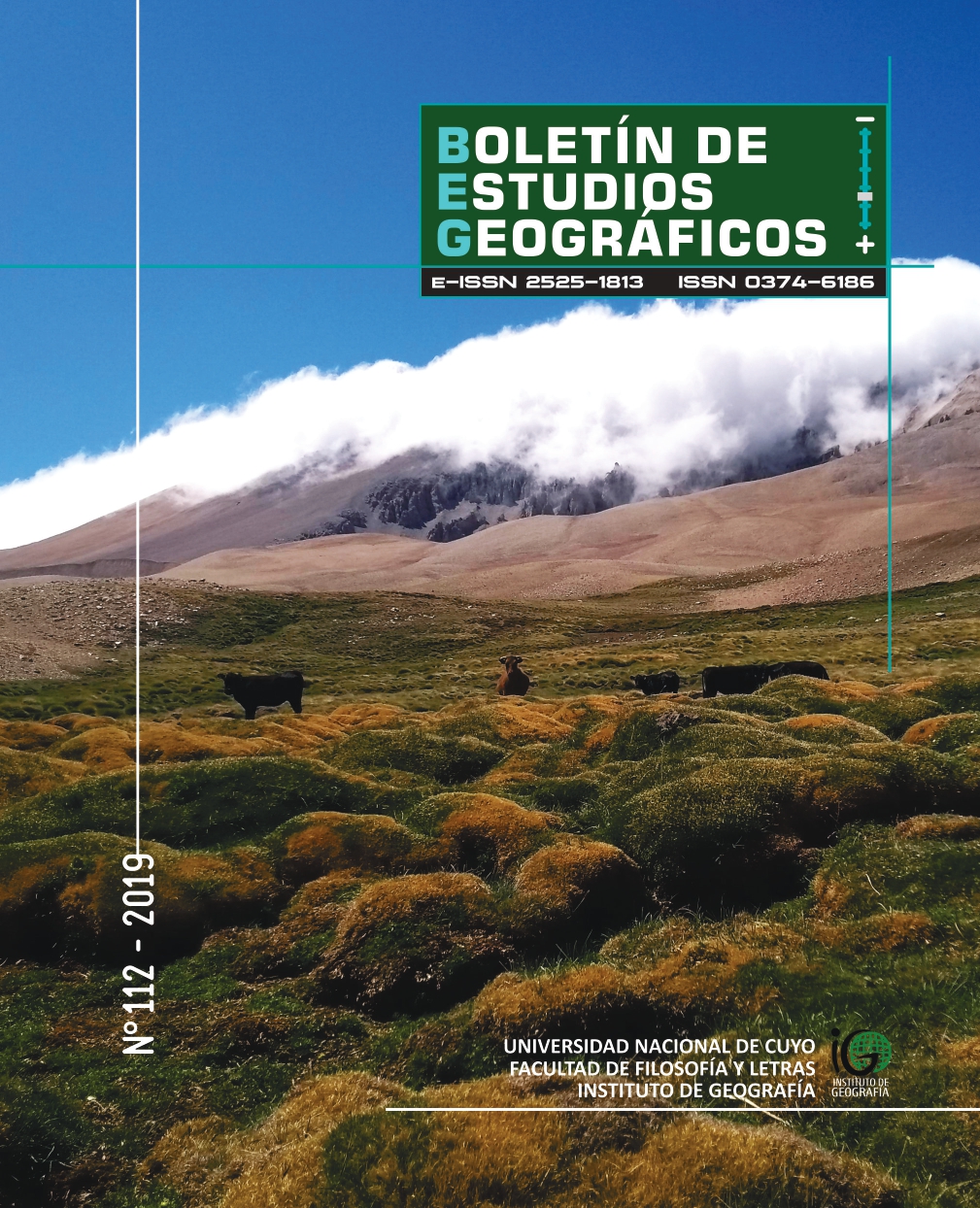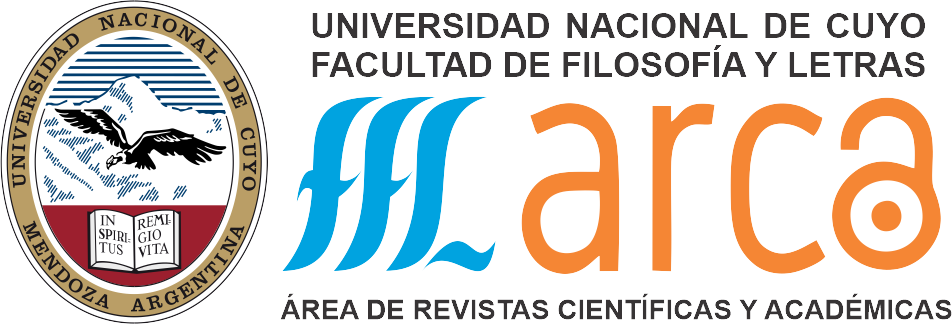Electro-mobility and the lithium triangle (Argentina, Bolivia, Chile): global tendencies in the context of climate change
Keywords:
Electro-mobility, natural resources, social-ecological conflicts, lithium, mining, South AmericaAbstract
Electro-mobility polarizes. While the automotive industry, governments and the media assign electro-mobility an important role in fighting against climate change and air pollution, the production of high-performance batteries is also accompanied by a growing demand for strategic resources, including lithium. In the following article, we first present important aspects of the current transformation of the automotive industry in Germany. Using the example of lithium mining in South America, we then describe the raw material problems of electro-mobility. Based on a ten-months field stay in the region between 2018 and 2019, We present the particular problems of lithium mining in the high Andean salt flats of South America. The research is primarily based on qualitative social research methods.
References
Anlauf, A. (2015). ¿Secar la tierra para sacar litio? Conflictos socio-ambientales en la minería del litio. En: Federico Nacif y Miguel Lacabana (eds.): ABC del Litio Sudamericano - Soberanía, Ambiente, Tecnología e Industria. Quilmes: Ediciones del CCC Centro Cultural de la Cooperación Floreal Gorini (Economía y Sociedad),171–192.
Anlauf, A. (2017). Greening the imperial mode of living? Socio-ecological (in)justice, electromobility, and lithium mining in Argentina. En: Melanie Pichler, Cornelia Staritz, Karin Küblböck, Christina Plank, Werner
Raza y Fernando Ruiz Peyré (eds.): Fairness and Justice in Natural Resource Politics. Abingdon-on-Thames: Routledge (Routledge Explorations in Environmental Studies), 164–180.
Azevedo, M., et. al. (2018). Lithium and cobalt - a tale of two commodities. edit. McKinsey & Company. New York (Metals and Mining).
Bauer, G. (2018). The impact of battery electric vehicles on vehicle purchase and driving behavior in Norway. En: Transportation Research Part D 58, 239–258. DOI: 10.1016/j.trd.2017.12.011.
Benedetti, A. (2005). Un territorio andino para un país pampeano - Geografía histórica del Territorio de los Andes (1900-1943). Dissertation. Universidad de Buenos Aires, Buenos Aires. Facultad de Filosofía y Letras.
Brand, U., Wissen, M. (2017). Imperiale Lebensweise - Zur Ausbeutung von Mensch und Natur im globalen Kapitalismus. München: oekom.
British Geological Survey (2016). Lithium. Commodity Profiles. edit. British Geological Survey. Keyworth.
COCHILCO (2009). Antecedentes para una Política Pública en Minerales Estratégicos: Litio. COCHILCO - Comisión Chilena del Cobre. Santiago de Chile. Disponible en línea en https://ciperchile.cl/pdfs/litio/estudio_cochilco.PDF.
Coy, M., Ruiz Peyré, F., Obermayr, C. (2017). South American resourcescapes, geographical perspectives and conceptual challenges. En: Die Erde 148 (2-3), 93–110.
Delgado, F., Göbel, B. (2003). Departamento de Susques: la historia olvidada de la Puna de Atacama. En: Alejandro Benedetti (ed.): Puna de Atacama - Sociedad, economía y frontera. Córdoba: Alción Editora, 81–104.
Der Spiegel (2019). In Norwegen fährt bereits jeder zweite Neuwagen elektrisch. En: Der Spiegel, 17/01/2019.
Dietz, K. (2016). Erschöpft. Konflikte um Natur, Rohstoffausbeutung und Großprojekte in Lateinamerika. En: APuZ - Aus Politik und Zeitgeschichte 66 (39), 28–34
Dorn, F. M. (2019). Neue Technik, neue Rohstoffe: Transformation der Automobilität und die Produktion von Lithium in Südamerika. En: Matthias Schmidt, Serge Leopold Middendorf y Sebastian Purwins (eds.): The Power of Political Ecology. Augsburg: Universität Augsburg (Geographica Augustana, 29),19–26.
Dorn, F. M., Hafner, R. (2018). Re-primarization revisited: an analysis of decision-making variables in the Argentine soy agribusiness (1993-2015). En: Sustainability in Debate 9 (2), 14–26.
Fornillo, B. (2014). ¿A qué llamamos Recursos Naturales Estratégicos? El caso de las baterías de litio en Argentina (2011-2014). En: Revista Estado y Políticas Públicas 3, 79–89.
Gil Montero, R. (2004). Caravaneros y trashumantes en los Andes meridionales. Población y familia indígena en la puna de Jujuy, 1770-1870. Lima: IEP Ediciones (Historia Andina, 28).
Gil Montero, R. (2018). Historia socioambiental: entre la conquista y el siglo XX. En: Grau, Héctor Ricardo; Babot, Judith; Izquierdo, Andrea y Grau, Alfredo (eds.): La puna argentina - Naturaleza y cultura. San Miguel de Tucumán, Fundación Miguel Lillo, 343-361.
Göbel, B. (2002). La arquitectura del pastoreo: Uso del espacio y sistema de asentamientos en la Puna de Atacama (Susques). En: Estudios Atacameños 23, 53-76.
Göbel, B. (2013). Lithium - das neue Öl der Anden? Sozio-ökologische Konfliktdynamiken im Lithiumbergbau Argentiniens. En: Hans-Jürgen Burchardt, Kristina Dietz y Rainer Öhlschläger (eds.): Umwelt und Entwicklung im 21. Jahrhundert: Impulse und Analysen aus Lateinamerika. Baden-Baden: Nomos Studien zu Lateinamerika, 20, 165–180.
Göbel, B. (2014). La minería de litio en Atacama: disputas sociales alrededor de un nuevo mineral estratégico. En: Barbara Göbel y Astrid Ulloa (eds.): Extractivismo minero en Colombia y América Latina. Bogotá: Biblioteca Abierta, (Perspectivas ambientales, 429), 167–193.
Gundermann, H., Göbel, B. (2018). Comunidades indígenas, empresas del litio y sus relaciones en el Salar de Atacama. En: Chungara Revista de Antropología Chilena 50 (3), 471–486.
Hartung, A. (2018). Elektro-PKW - eine ökologische Modernisierung der Automobilität? En: Prokla 48 (4), 561–568.
Henríquez, B. J. (2018). Impacto socioambiental de la extracción de litio en las cuencas de los salares altoandinos del cono sur. Santiago d Chile: edit. OCMAL Observatorio de Conflictos Mineros de América Latina.
Hollender, R., shultz, J. (2010). Bolivia and its Lithium - Can the "Gold of the 21st Century" Help Lift a Nation out of Poverty? Cochabamba: edit. por The Democracy Center. The Democracy Center.
Leifker M., Lincoln S., Saenger K., Hilbig, S., Müller A. (2018). Das weiße Gold: Umwelt und Sozialkonflikte um den Zukunftsrohstoff Lithium. Analyse. Berlin.
Mariette, M. (2020). En Bolivie, la filière lithium à l’encan. En: Le Monde diplomatique, 2020 (01/2020),26-28, Recuperado de: https://mondiplo.com/en-bolivia-el-sector-del-litio-a-subasta
Menzel, S. (2019). Die deutschen Autobauer holen bei der E-Mobilität auf – haben aber eine große Schwäche. En: Handelsblatt, 02/01/2019.
Müller, T. (2011). Globaler Klimaschutz: Klappe, die Siebzehnte - Von der ewigen Wiederkehr des Gleichen (Versagens). edit. por Rosa Luxemburg Stiftung. Rosa Luxemburg Stiftung. Berlin (Standpunkte, 39). Disponible en línea en https://www.rosalux.de/fileadmin/rls_uploads/pdfs/Standpunkte/Standpunkte_39-2011.pdf.
Öko-Institut (2017). Strategien für die nachhaltige Rohstoffversorgung der Elektromobilität -Synthesepapier zum Rohstoffbedarf für Batterien und Brennstoffzellen. Studie im Auftrag von Agora Verkehrswende. Darmstadt.
Otto, K.-H. (2000). Lithium - Hightech-Rohstoff aus der Atacama (Chile). En: Geographische Rundschau (3), pág. 10–16.
Puente, F., Argento, M. (2015). Conflictos territoriales y construcción identitaria en los salares del noroeste argentino. En: Bruno Fornillo (ed.): Geopolítica del Litio - Industria, Ciencia y Energía en Argentina. Buenos Aires: Editorial El Colectivo (Colección Chico Mendes), 123–166.
Rivet, C. (2014). Territorialidad colonial en Atacama – El caso de Coranzulí (provincial de Jujuy, Argentina). En: Museo Arqueológico "Pío Pablo Díaz", Estudios. Antropología-Historia 2, 123-139.
Romare, M., Dahllöf, L. (2017). The Life Cycle Energy Consumption and Greenhouse Gas Emissions from Lithium Ion-Batteries. A Study with Focus on Current Technology and Batteries for light-duty vehicles. Stockholm: edit. por IVL Swedish Environmental Research Institute. IVL Swedish Environmental Research Institute. (C243).
Ruiz Peyré, F., Dorn, F. M. (2020). Aprovechamiento del litio en el Noroeste Argentino - Realidades, desafíos y perspectivas en un mundo globalizado. En: Scripta Nova 24 (632), 1–27. DOI: 10.1344/sn2020.24.22466.
Schiaffini, H. (2013). Litio, llamas y sal en la Puna argentina - Pueblos originarios y expropiación en torno al control territorial de Salinas Grandes. En: Revista de la Carrera de Sociología 3 (3).
Ströbele-Gregor, J. (2012). Lithium in Bolivien: Das staatliche Lithium-Programm, Szenarien sozioökologischer Konflikte und Dimensionen sozialer Ungleichheit. edit. por desigualdades.net International Research Network on Interdependent Inequalities in Latin America. Berlin (Working Paper Series, 13).
Svampa, M. (2016). Debates latinoamericanos – Indianismo, desarrollo, dependencia y populismo. Buenos Aires: Edhasa.
USGS (2017). Mineral Commodity Summaries: Lithium. US Geological Survey. Reston.
USGS (2019). Mineral Commodity Summaries: Lithium. US Geological Survey. Reston.
Vcö (2018). Rebound- und Seiten-Effekte im Verkehrssystem. Wien (Mobilität mit Zukunft).
Vivanco, D. F. et. al. (2014). The Remarkable Environmental Rebound Effect of Electric Cars: a Microeconomic Approach. En: Environmental Science & Technology 48 (20). DOI: 10.1021/es5038063.
Volkswagen (2017). Mit der "Roadmap E" startet der Volkswagen Konzern die umfassendste Elektrifizierungsoffensife der Automobilindustrie. Volkswagen AG. Wolfsburg. Disponible en línea en https://www.volkswagenag.com/de/news/2017/09/Roadmap_E.html.
Wolf, W. (2018). Elektro-PKW als Teil der Krise der aktuellen Mobilität. Oder: Die Notwendigkeit einer umfassenden Verkehrswende. München: edit. por isw - Institut für sozial-ökologische Wirtschaftsforschung e.V. isw - Institut für sozial-ökologische Wirtschaftsforschung e.V. (isw-Report, 112/113).
Zícari, J. (2015). El mercado del litio desde una perspectiva global: de la Argentina al mundo. Actores, lógicas y dinámicas. En: Bruno Fornillo (ed.): Geopolítica del Litio - Industria, Ciencia y Energía en Argentina. Buenos Aires: Editorial El Colectivo (Colección Chico Mendes), 19–56.


























